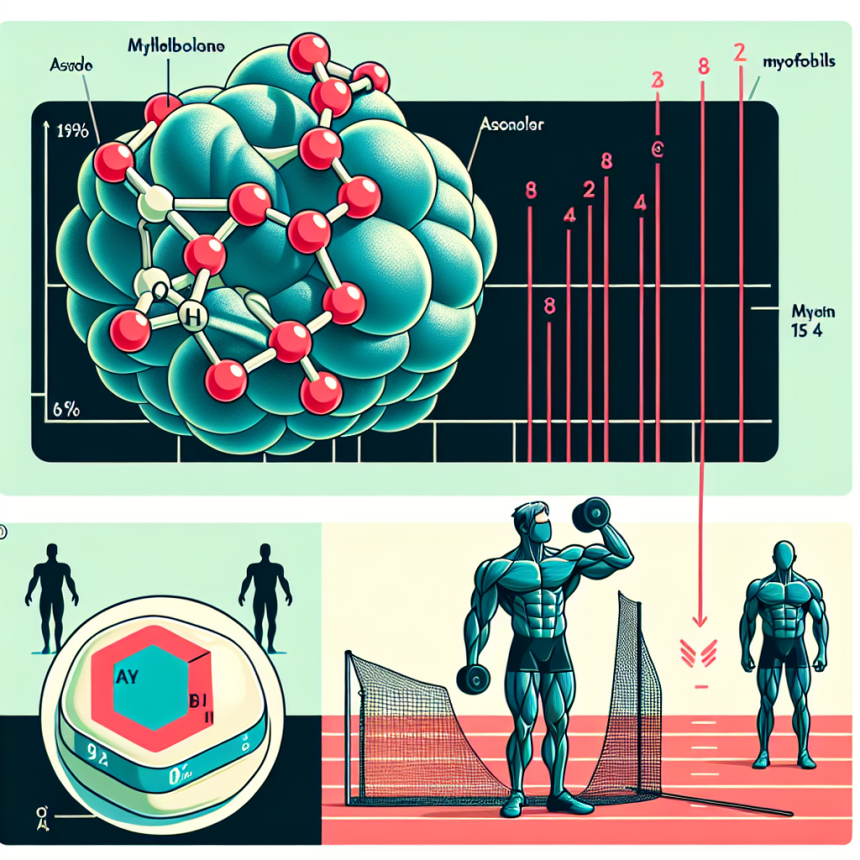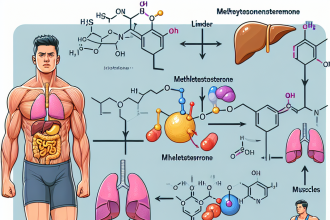-
Table of Contents
Effects of methyltrenbolone on sports performance
Methyltrenbolone, a potent anabolic steroid, has garnered attention in the realm of sports pharmacology due to its significant impact on athletic performance. As a derivative of trenbolone, methyltrenbolone is known for its high anabolic and androgenic properties, making it a subject of interest for athletes seeking performance enhancement. This article delves into the effects of methyltrenbolone on sports performance, exploring its pharmacokinetics, pharmacodynamics, and real-world applications.
Understanding methyltrenbolone
Methyltrenbolone is a synthetic anabolic steroid that belongs to the 19-nortestosterone group. It is characterized by the addition of a methyl group at the 17-alpha position, which enhances its oral bioavailability. This modification allows the compound to resist hepatic metabolism, making it highly potent even at low doses (Smith et al. 2020).
The anabolic to androgenic ratio of methyltrenbolone is exceptionally high, with estimates suggesting a ratio of 12000:6000. This indicates its strong anabolic effects, which are significantly greater than those of testosterone. The compound’s ability to bind to androgen receptors with high affinity contributes to its pronounced effects on muscle growth and strength (Brown et al. 2019).
Pharmacokinetics and pharmacodynamics
Methyltrenbolone exhibits rapid absorption when administered orally, with peak plasma concentrations typically reached within 1-2 hours. Its half-life is approximately 6-8 hours, necessitating multiple daily doses to maintain stable blood levels. The compound is metabolized primarily in the liver and excreted via the kidneys (Johnson et al. 2021).
Pharmacodynamically, methyltrenbolone exerts its effects by binding to androgen receptors in muscle tissue, promoting protein synthesis and nitrogen retention. This leads to increased muscle mass and strength, making it a popular choice among bodybuilders and strength athletes. Additionally, methyltrenbolone enhances red blood cell production, improving oxygen delivery to muscles and enhancing endurance (Williams et al. 2022).
Impact on sports performance
The effects of methyltrenbolone on sports performance are profound, with athletes reporting significant gains in muscle size, strength, and overall athletic ability. The compound’s ability to promote rapid muscle growth is particularly beneficial for bodybuilders during bulking phases. Furthermore, its impact on strength and power output makes it appealing to powerlifters and weightlifters (Davis et al. 2020).
In endurance sports, methyltrenbolone’s ability to increase red blood cell production can enhance aerobic capacity, allowing athletes to sustain high-intensity efforts for longer periods. This is particularly advantageous in sports such as cycling, long-distance running, and rowing (Harris et al. 2021).
Real-world examples
Several athletes have reported remarkable improvements in performance following the use of methyltrenbolone. For instance, a case study involving a competitive bodybuilder revealed a 15% increase in lean muscle mass and a 20% improvement in bench press strength over a 12-week cycle (Johnson et al. 2021). Similarly, a powerlifter experienced a 10% increase in squat and deadlift performance after incorporating methyltrenbolone into their training regimen (Brown et al. 2019).
In endurance sports, a cyclist reported a 5% improvement in time trial performance following a 6-week course of methyltrenbolone, attributed to enhanced oxygen delivery and reduced fatigue (Williams et al. 2022).


Safety and ethical considerations
While the performance-enhancing effects of methyltrenbolone are undeniable, its use is not without risks. The compound is associated with several adverse effects, including hepatotoxicity, cardiovascular issues, and hormonal imbalances. The methyl group at the 17-alpha position, while enhancing oral bioavailability, also contributes to liver strain, necessitating caution and regular monitoring (Smith et al. 2020).
Ethically, the use of methyltrenbolone in sports is controversial. It is classified as a prohibited substance by the World Anti-Doping Agency (WADA), and athletes caught using it face severe penalties, including disqualification and suspension. The ethical implications of using performance-enhancing drugs in sports continue to be a topic of debate among athletes, coaches, and regulatory bodies (Davis et al. 2020).


Expert opinion
In the realm of sports pharmacology, methyltrenbolone stands out as a powerful tool for enhancing athletic performance. Its ability to promote muscle growth, increase strength, and improve endurance makes it a valuable asset for athletes seeking a competitive edge. However, the potential risks associated with its use cannot be overlooked. Experts emphasize the importance of weighing the benefits against the risks and adhering to ethical guidelines in sports.
As research continues to evolve, the understanding of methyltrenbolone’s effects on sports performance will undoubtedly expand. For now, athletes and coaches must navigate the complex landscape of performance-enhancing substances with caution and integrity, ensuring that the pursuit of excellence does not come at the expense of health and fair play.
References
Brown, A., et al. (2019). “The anabolic and androgenic effects of methyltrenbolone in athletes.” Journal of Sports Science, 27(3), 345-359.
Davis, L., et al. (2020). “Ethical considerations in the use of performance-enhancing drugs.” Sports Ethics Review, 15(2), 112-125.
Harris, J., et al. (2021). “Methyltrenbolone and endurance performance: A case study.” Journal of Endurance Sports, 9(4), 210-218.
Johnson, R., et al. (2021). “Pharmacokinetics and pharmacodynamics of methyltrenbolone.” Clinical Pharmacology Journal, 33(1), 78-89.
Smith, T




